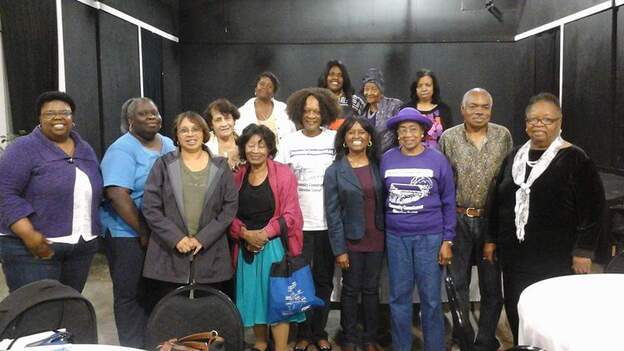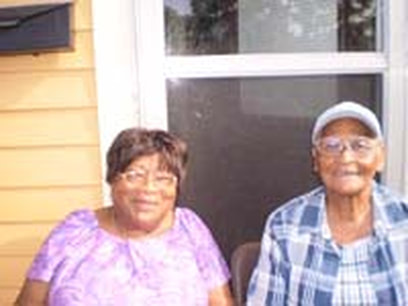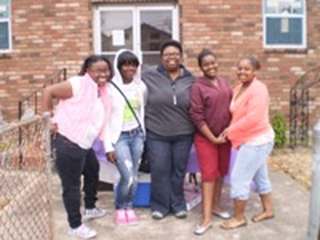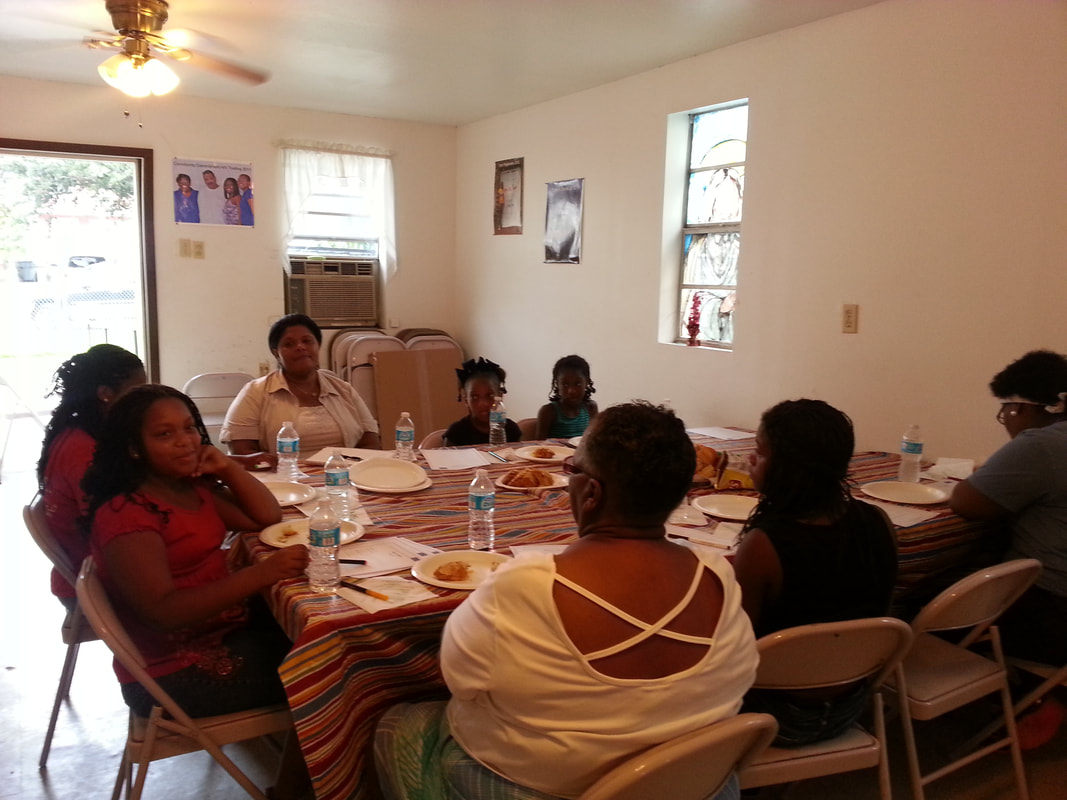Our History

Community Commitment Education Center (CCEC) was born in 1995 when CCEC’s founder returned to Pension Town after college. She saw many of the elders down-sizing and selling their family homes to go and live with their children and grandchildren. The elders who stayed were under-served and disconnected from their changing community.
At the time Ms. Bouie’s work with Child Protective Services and the Orleans Parish School Board connected her to families; families that were increasingly children and grandparents. These grandparents needed support in navigating a changing education system with greater demands from families.
Carrolton was one of the only areas of New Orleans that didn’t flood during Hurricane Katrina. Most Elders still evacuated their homes and, after the flood, didn’t immediately return home. At the same time migration of New Orleans and relief workers to the Carrollton area increased by over 100%. Single family homes became shared housing. Many of the Elders who were displaced sold their homes without ever returning to the city.
Carrolton was one of the only areas of New Orleans that didn’t flood during Hurricane Katrina. Most Elders still evacuated their homes and, after the flood, didn’t immediately return home. At the same time migration of New Orleans and relief workers to the Carrollton area increased by over 100%. Single family homes became shared housing. Many of the Elders who were displaced sold their homes without ever returning to the city.
|
Nicole did not lose her home in the Hurricane but as an OPSB staff member she did lose her job. In the early days when she was unemployed, she and her wife and their neighbors began supporting one another clearing out homes and businesses that had been abandoned to the threat of flood waters. As the houses were being cleared Nicole began to, out of her car and on her porch, “connect the people of the community with the available resources” and CCEC was born. |

Within weeks the people who are now members of the CCEC Board of Directors had become CCEC’s first volunteers.
In the beginning, the work consisted of supporting Seniors; helping them file insurance and relief claims, connecting them to resources in the rapidly changing New Orleans. From hosting community meeting to case management support CCEC became the site of connection for many seniors living in the Leonidas area in 2008.
In 2009 CCEC established their vision, rented a space and developed a five-year plan to support community members with evening computer classes, empowerment sessions and case management to support families navigating HANO, SNAP and other city supported needs.
In the beginning, the work consisted of supporting Seniors; helping them file insurance and relief claims, connecting them to resources in the rapidly changing New Orleans. From hosting community meeting to case management support CCEC became the site of connection for many seniors living in the Leonidas area in 2008.
In 2009 CCEC established their vision, rented a space and developed a five-year plan to support community members with evening computer classes, empowerment sessions and case management to support families navigating HANO, SNAP and other city supported needs.
|
That year CCEC found a physical and fiscal sponsor, the Evening Star Missionary Baptist Church.
Evening Star Missionary Baptist Church heard about the work of CCEC, it’s volunteers and mission and offered them the keys to the church. Out of the Church CCEC was able to expand it’s existing work to be more holistic; offering fitness programs, cooking, and seminars on mental health. Since the beginning CCEC’s most engaged adults often attending meetings and classes with children. |
4-year old’s, 7-year old’s, 10-year old’s—those too young to stay home alone. After years of having them tag along CCEC developed its first programming for children; reading and story time.
In these years most of CCEC programs were paid for with grassroots fundraising; 50/50 raffles, handwritten checks and tin cans at Walgreens.
By 2010 CCEC began offering reading classes to people of all ages. 2010 is when the 2008 Financial Crisis reached the average U.S. American and caused a second wave of displacement that impacted those who returned after Hurricane Katrina. In response to the push from community to understand how to navigate the new world of home equity and gentrification CCEC continued its work of being responsive to the needs of the community. Volunteer run programming expanded again to include informationals with realtors and home ownership courses.
In 2013 CCEC outgrew the Evening Star Missionary Baptist Church moved to its current location. Grassroots fundraising and loans made it possible to buy and renovate a home for the Organization.
It’s on a busy corner of Spruce Street at the site of the former Riaras Hardware Store.
It’s our home today. . .
In these years most of CCEC programs were paid for with grassroots fundraising; 50/50 raffles, handwritten checks and tin cans at Walgreens.
By 2010 CCEC began offering reading classes to people of all ages. 2010 is when the 2008 Financial Crisis reached the average U.S. American and caused a second wave of displacement that impacted those who returned after Hurricane Katrina. In response to the push from community to understand how to navigate the new world of home equity and gentrification CCEC continued its work of being responsive to the needs of the community. Volunteer run programming expanded again to include informationals with realtors and home ownership courses.
In 2013 CCEC outgrew the Evening Star Missionary Baptist Church moved to its current location. Grassroots fundraising and loans made it possible to buy and renovate a home for the Organization.
It’s on a busy corner of Spruce Street at the site of the former Riaras Hardware Store.
It’s our home today. . .

